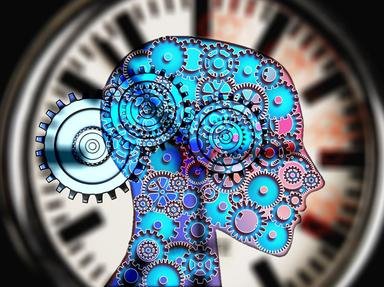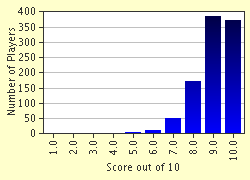Quiz Answer Key and Fun Facts
1. Children do not suffer from depression.
2. Depression is a common illness.
3. Exercise can help some forms of depression.
4. Change in season can bring on some forms of depression.
5. You have to feel depressed to have depression.
6. A depressed person living in a home with a gun in it is more likely to commit suicide than one in a home without a gun.
7. Schizophrenia and Bi-Polar Disorder are the same thing.
8. Bi-Polar Disorder and Manic Depression are the same thing.
9. More women than men are likely to suffer from depression.
10. There are several treatments for depression.
Source: Author
MollyGrue
This quiz was reviewed by FunTrivia editor
crisw before going online.
Any errors found in FunTrivia content are routinely corrected through our feedback system.


